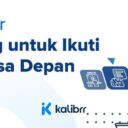Characteristics of the Modern Filipino Jobseeker

Jobseekers from the Philippines stand-out because of a combination of different characteristics
Every country has differing values and stereotypes, and the workers of each are no exception. In the Philippines, there are characteristics which, when combined together, make up what could be considered the modern Filipino jobseeker.
Now, while employers in the country and outside of it may already be accustomed to hiring from the Philippine workforce of 72.5 million and counting, there is no harm in continuing to know the talent pool, particularly the characteristics which helps make most of them the ideal candidates, or the traits to be wary of/be prepared to work on as they are hired.
TOPICS
Well-spoken
For the past decades, the Philippines had been among the most English-proficient in Southeast Asia. This is one of the key reasons why thousands of foreign nationals visit the country to study the language, along with why the business process outsourcing (BPO) industry had been among its most dynamic and fastest growing industries in the last several years.
Filipino professionals’ ability to adequately communicate in English continues to make them the ideal choice for different learning opportunities and job vacancies, especially those who can satisfactorily complete English certification tests such as TOEFL or IELTS.
However, a study published by Hopkins International Partners early last year has revealed the decline of English proficiency in the country which, if it continues, will eventually affect Filipinos’ global employability. The study showed the Philippines is still a competent country in the language, albeit not at par with native English-speaking nations. This should not be too alarming. Notably, while the Philippines’ English proficiency has stagnated, countries like that of Thailand and Vietnam actually improve.
Persistent
Due to the relatively challenging working conditions in the Philippines, Filipino professionals usually demonstrate a high tolerance for stress and are accustomed to putting on their best-effort even under challenging circumstances.
Whether it’s enduring a long commute because of traffic, having to make due with a salary that not only shrinks but also has modest power because of incessant taxation, or fulfilling tech-dependent roles in a place with modest internet speeds, most Filipinos know how to be patient and go through the motions to get the job done.
When looking for new job opportunities, the same patience and persistence is similarly put on display. When rejected for a dream role, Filipino job seekers often re-apply, usually after gaining the experience they need for it elsewhere or by seeking out learning and training opportunities to become better qualified.
Internet-savvy
In Digital 2019, a report from social media management platform Hootsuite and digital media company “We are Social” was published. It explored people’s online behavior around the world, and Filipinos were found to be spending an average of 10:02 hours a day on the internet – on any device. This data comes in despite the country lagging behind in terms of internet speed.
According to the report, out of the country’s estimated population of 76 million, 71% are active internet users, with 67% going online via mobile. These Filipinos interact on social media, read and view news, and buy products and services online. Given this, they also search for employment online.
They use jobseeking sites such as Kalibrr, LinkedIn or, commonly, Facebook where associated professional groups thrive.
Tech-savvy too
Many Filipinos actually have extensive technological knowledge and skills, even as some of them have just, or are about to, enter the workforce.
On Kalibrr, Information Technology accounts for over 18% of the top 20 courses taken or finished by its users. Accounting was at a distant second at just over 10%. Courses associated with I.T. such as Computer Science (8%) and Computer Engineering (3-percent) were also among the top 20 courses taken by Kalibrr users.
Apart from becoming knowledgeable in tech and digital in traditional learning institutions, today’s Filipino job seekers are now, more than ever, able to increase their digital know-how via online courses, short-term training courses, and learning on their own.
Entrepreneurial
In this era of vast digital advancements, tech start-ups have seemingly become the new norm, as the business model often requires modest capital to begin. This has provided Filipino professionals the opportunity to be more entrepreneurial in their careers, as some have indeed started their own companies, or are working to gain the experience and capital needed to reach that goal.
If not establishing their own start-ups, this entrepreneurial inclination has also made working for new companies increasingly appealing, with working in new ventures and having their careers grow along with the companies becoming a common consideration among Filipino jobseekers.
Additionally, the advances in digital technology have also allowed them to make businesses out of themselves. Be it taking on freelance or remote work, engaging in retail via different e-commerce platforms, or monetizing their reach as social media influencers, Filipinos professionals these days are often further sharpening their skills in business, marketing, and multimedia to earn extra income.
Need help with recruitment? Sign up for Kalibrr and start hiring better today!
Kalibrr is a technology company that aims to transform how candidates find jobs and how companies hire talent. Placing the candidate experience at the center of everything it does, the company continues to attract the best talent from all over, with over 2.3 million professionals and counting. Kalibrr ultimately connects these talents to companies in search of their next generation of leaders.
The only end-to-end recruitment solutions provider in Southeast Asia, Kalibrr is headquartered in Makati, Philippines, with offices in San Francisco, California and Jakarta, Indonesia. Established in 2012, it has served over 18,000 clients and is backed by some of the world’s most powerful start-up incubators and venture capitalists. These include Y Combinator, Omidyar Network, Patamar Capital, Wavemaker Partners, and Kickstart Ventures.
For more business and recruiter advice, follow Kalibrr on Facebook, Twitter, LinkedIn, and Instagram.






No comment available yet!